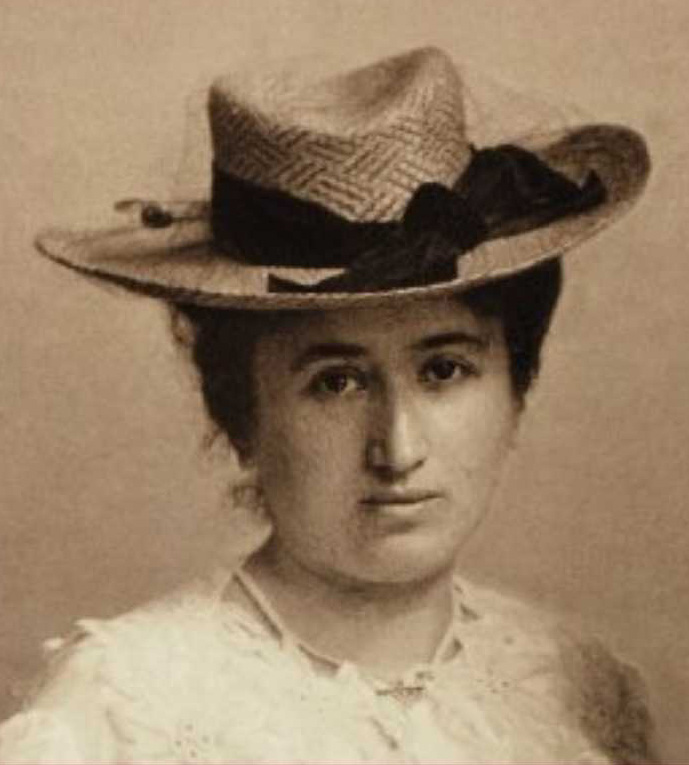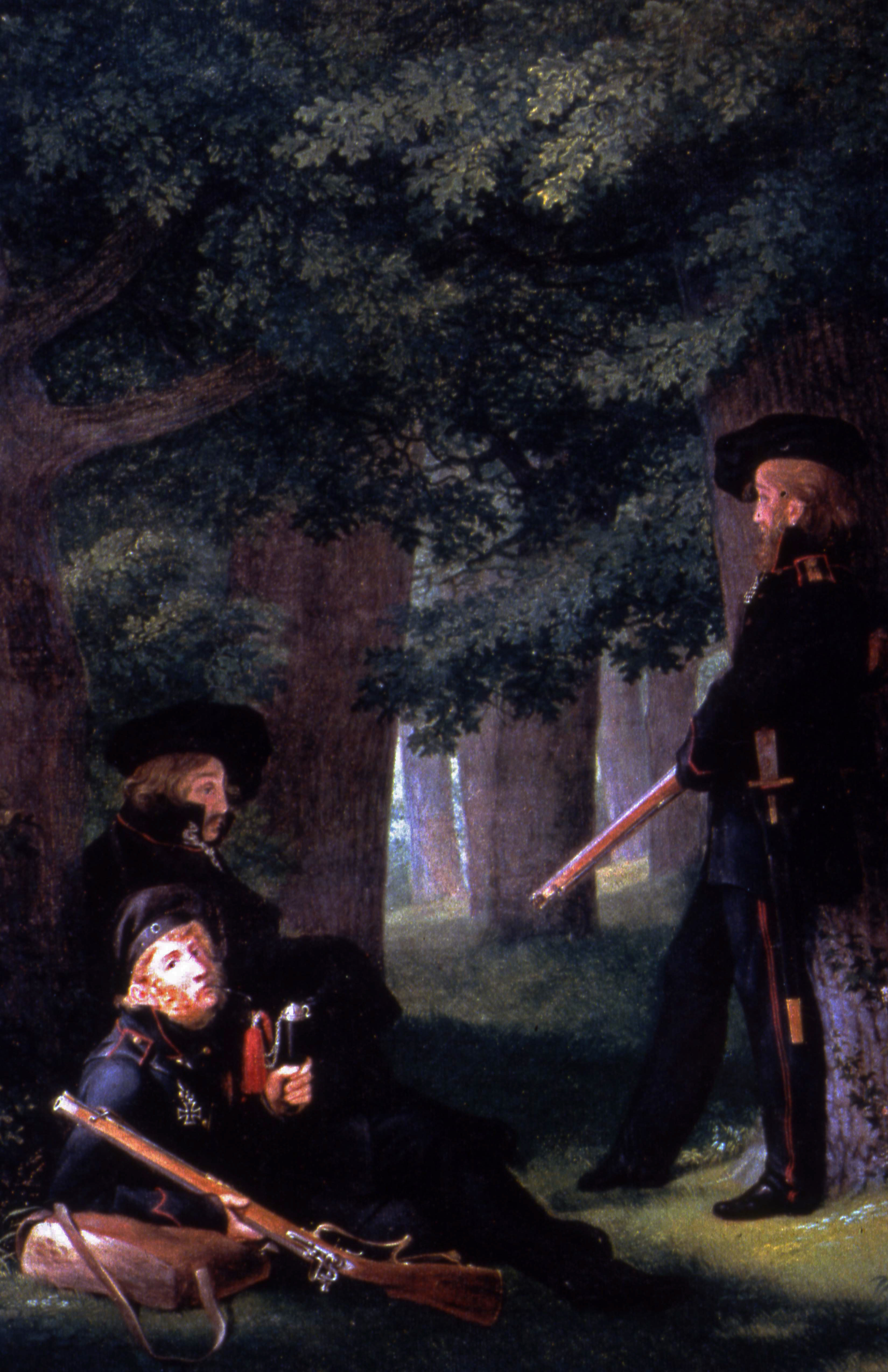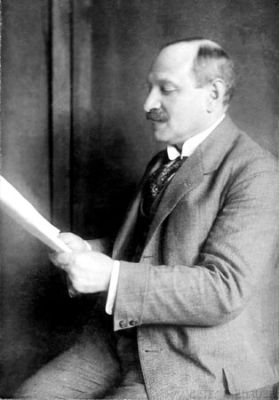|
Rosa Luxemburg
Rosa Luxemburg ( ; ; ; born Rozalia Luksenburg; 5 March 1871 – 15 January 1919) was a Polish and naturalised-German revolutionary and Marxist theorist. She was a key figure of the socialist movements in Poland and Germany in the early 20th century. Born to a Jewish family in Congress Poland, then part of the Russian Empire, Luxemburg became involved in radical politics at an early age via the Proletariat (party), Proletariat party, and fled to Switzerland in 1889. She helped found the Social Democracy of the Kingdom of Poland and Lithuania (SDKPiL) party in 1893, and in 1897 was awarded a Doctor of Law in political economy from the University of Zurich, becoming one of the first women in Europe to do so. In 1898, Luxemburg moved to Germany, and soon became a leading figure in the Social Democratic Party of Germany (SPD). Her political activities included teaching Marxist economics at the party's training school. Luxemburg was imprisoned several times, including in Germany ... [...More Info...] [...Related Items...] OR: [Wikipedia] [Google] [Baidu] |
Kostja Zetkin
Konstantin "Kostja" Zetkin (14 April 1885 – September 1980) was a German physician, :de:Volkswirtschaftslehre, social economist and political activist. He was the son of Clara Zetkin, an iconic pioneer of the political left in Germany. For a time, he became the lover of another, Rosa Luxemburg. Life Provenance and early years Konstantin Zetkin, always identified as "Kostja" in family correspondence and in almost all other sources, was born in Paris. Kostja's father, :de:Ossip Zetkin, Ossip Zetkin (1850–1889), was a Russian Empire, Russian revolutionary and socialist who had suffered persecution on account of his involvement in the Narodniks movement and fled to Leipzig where, as a young man, he had supported himself as a carpenter and become active in student politics. That was how he met the trainee teacher, Clara Zetkin, Clara Eißner (1857–1933). In the context of the recently enacted Anti-Socialist Laws Ossip Zetkin was arrested at a political meeting in 1880, ide ... [...More Info...] [...Related Items...] OR: [Wikipedia] [Google] [Baidu] |
Zamość
Zamość (; ; ) is a historical city in southeastern Poland. It is situated in the southern part of Lublin Voivodeship, about from Lublin, from Warsaw. In 2021, the population of Zamość was 62,021. Zamość was founded in 1580 by Jan Zamoyski, Chancellor (Poland), Grand Chancellor of Poland, who envisioned an ideal city. The historical centre of Zamość was added to the UNESCO UNESCO World Heritage Site, World Heritage List in 1992, following a decision of the sixteenth ordinary session of the World Heritage Committee, held between 7 and 14 December 1992 in Santa Fe, New Mexico, United States; it was recognized for being "a unique example of a Renaissance in Poland, Renaissance town in Central Europe". Zamość is about from the Roztocze National Park. History Zamość was founded in 1580 by the Kanclerz, Chancellor and Hetman (head of the army of the Polish–Lithuanian Commonwealth), Jan Zamoyski, on the trade route linking western and northern Europe with the Black Sea ... [...More Info...] [...Related Items...] OR: [Wikipedia] [Google] [Baidu] |
Radical Politics
Radical politics denotes the intent to transform or replace the principles of a society or political system, often through social change, structural change, revolution or radical reform. The process of adopting radical views is termed radicalisation. The word derives from the Latin ("root") and Late Latin ("of or pertaining to the root, radical"). Historically, political use of the term referred exclusively to a form of progressive electoral reformism, known as Radicalism, that had developed in Europe during the 18th and 19th centuries. However, the denotation has changed since its 18th century coinage to comprehend the entire political spectrum, though retaining the connotation of "change at the root". History The ''Oxford English Dictionary'' traces usage of 'radical' in a political context to 1783. The ''Encyclopædia Britannica'' records the first political usage of 'radical' as ascribed to Charles James Fox, a British Whig Party parliamentarian who in 1797 p ... [...More Info...] [...Related Items...] OR: [Wikipedia] [Google] [Baidu] |
Eduard Bernstein
Eduard Bernstein (; 6 January 1850 – 18 December 1932) was a German Marxist theorist and politician. A prominent member of the Social Democratic Party of Germany (SPD), he has been both condemned and praised as a "Revisionism (Marxism), revisionist" who challenged major aspects of Karl Marx's thought. A key influence on the European Social democracy, social democratic movement, Bernstein argued for reformism over revolutionary action, and for a gradual democratization to achieve socialism. Bernstein joined the Social Democratic Workers' Party of Germany, Social Democratic Workers Party in 1872, which was merged into the SPD in 1875. He lived in exile in Switzerland and later London from 1878 to 1901, and in 1880 met Marx and Engels, who impressed him with their thought. With Karl Kautsky, Bernstein was one of the drafters of the party's Erfurt Program of 1891. In his 1899 book ''Evolutionary Socialism'', Bernstein argued that socialism would be achieved through accumulated refo ... [...More Info...] [...Related Items...] OR: [Wikipedia] [Google] [Baidu] |
Reformism
Reformism is a political tendency advocating the reform of an existing system or institution – often a political or religious establishment – as opposed to its abolition and replacement via revolution. Within the socialist movement, reformism is the view that gradual changes through existing institutions can eventually lead to fundamental changes in a society's political and economic systems. Reformism as a political tendency and hypothesis of social change grew out of opposition to revolutionary socialism, which contends that revolutionary upheaval is a necessary precondition for the structural changes necessary to transform a capitalist system into a qualitatively different socialist system. Responding to a pejorative conception of reformism as non- transformational, philosopher André Gorz conceived non-reformist reform in 1987 to prioritize human needs over capitalist needs. As a political doctrine, centre-left reformism is distinguished from centre-right or pra ... [...More Info...] [...Related Items...] OR: [Wikipedia] [Google] [Baidu] |
The Guardian
''The Guardian'' is a British daily newspaper. It was founded in Manchester in 1821 as ''The Manchester Guardian'' and changed its name in 1959, followed by a move to London. Along with its sister paper, ''The Guardian Weekly'', ''The Guardian'' is part of the Guardian Media Group, owned by the Scott Trust Limited. The trust was created in 1936 to "secure the financial and editorial independence of ''The Guardian'' in perpetuity and to safeguard the journalistic freedom and liberal values of ''The Guardian'' free from commercial or political interference". The trust was converted into a limited company in 2008, with a constitution written so as to maintain for ''The Guardian'' the same protections as were built into the structure of the Scott Trust by its creators. Profits are reinvested in its journalism rather than distributed to owners or shareholders. It is considered a newspaper of record in the UK. The editor-in-chief Katharine Viner succeeded Alan Rusbridger in 2015. S ... [...More Info...] [...Related Items...] OR: [Wikipedia] [Google] [Baidu] |
Murder
Murder is the unlawful killing of another human without justification (jurisprudence), justification or valid excuse (legal), excuse committed with the necessary Intention (criminal law), intention as defined by the law in a specific jurisdiction (area), jurisdiction. ("The killing of another person without justification or excuse, especially the crime of killing a person with malice aforethought or with recklessness manifesting extreme indifference to the value of human life.") This state of mind may, depending upon the jurisdiction, distinguish murder from other forms of unlawful homicide, such as manslaughter. Manslaughter is killing committed in the absence of Malice (law), ''malice'',This is "malice" in a technical legal sense, not the more usual English sense denoting an emotional state. See malice (law). such as in the case of voluntary manslaughter brought about by reasonable Provocation (legal), provocation, or diminished capacity. Involuntary manslaughter, ''Invol ... [...More Info...] [...Related Items...] OR: [Wikipedia] [Google] [Baidu] |
Freikorps
(, "Free Corps" or "Volunteer Corps") were irregular German and other European paramilitary volunteer units that existed from the 18th to the early 20th centuries. They effectively fought as mercenaries or private military companies, regardless of their own nationality. In German-speaking countries, the first so-called ("free regiments", ''Freie Regimenter'') were formed in the 18th century from native volunteers, enemy renegades, and deserters. These sometimes exotically equipped units served as infantry and cavalry (or, more rarely, as artillery); sometimes in just company strength and sometimes in formations of up to several thousand strong. There were also various mixed formations or legions. The Prussian included infantry, jäger, dragoons and hussars. The French '' Volontaires de Saxe'' combined uhlans and dragoons. In the aftermath of World War I and during the German Revolution of 1918–19, , consisting partially of World War I veterans, were raised as para ... [...More Info...] [...Related Items...] OR: [Wikipedia] [Google] [Baidu] |
Weimar Republic
The Weimar Republic, officially known as the German Reich, was the German Reich, German state from 1918 to 1933, during which it was a constitutional republic for the first time in history; hence it is also referred to, and unofficially proclaimed itself, as the German Republic. The period's informal name is derived from the city of Weimar, which hosted the constituent assembly that established its government. In English, the republic was usually simply called "Germany", with "Weimar Republic" (a term introduced by Adolf Hitler in 1929) not commonly used until the 1930s. The Weimar Republic had a semi-presidential system. Toward the end of the First World War (1914–1918), Germany was exhausted and suing for peace, sued for peace in desperate circumstances. Awareness of imminent defeat sparked a German Revolution of 1918–1919, revolution, Abdication of Wilhelm II, the abdication of Kaiser Wilhelm II, the proclamation of the Weimar Republic on 9 November 1918, and formal cessa ... [...More Info...] [...Related Items...] OR: [Wikipedia] [Google] [Baidu] |
Spartacist Uprising
The Spartacist uprising (German: ), also known as the January uprising () or, more rarely, Bloody Week, was an armed uprising that took place in Berlin from 5 to 12 January 1919. It occurred in connection with the German Revolution of 1918–1919, German revolution that broke out just before the end of World War I. The uprising was primarily a power struggle between the supporters of the provisional government led by Friedrich Ebert of the Majority Social Democratic Party of Germany (MSPD), which favored a social democracy, and those who backed the position of the Communist Party of Germany (KPD) led by Karl Liebknecht and Rosa Luxemburg, which wanted to set up a Soviet republic, council republic similar to the one established by the Bolsheviks in Russia. The government's forces were victorious in the fighting. The uprising began with mass demonstrations and strikes called by the parties of the radical left to protest the dismissal of Berlin's chief of police. Taken by sur ... [...More Info...] [...Related Items...] OR: [Wikipedia] [Google] [Baidu] |
German Revolution Of 1918–19
German(s) may refer to: * Germany, the country of the Germans and German things **Germania (Roman era) * Germans, citizens of Germany, people of German ancestry, or native speakers of the German language ** For citizenship in Germany, see also German nationality law **Germanic peoples (Roman era) * German diaspora * German language * German cuisine, traditional foods of Germany People * German (given name) * German (surname) * Germán, a Spanish name Places * German (parish), Isle of Man * German, Albania, or Gërmej * German, Bulgaria * German, Iran * German, North Macedonia * German, New York, U.S. * Agios Germanos, Greece Other uses * German (mythology), a South Slavic mythological being * Germans (band), a Canadian rock band * "German" (song), a 2019 song by No Money Enterprise * ''The German'', a 2008 short film * "The Germans", an episode of ''Fawlty Towers'' * ''The German'', a nickname for Congolese rebel André Kisase Ngandu See also * Germanic (disa ... [...More Info...] [...Related Items...] OR: [Wikipedia] [Google] [Baidu] |
Karl Liebknecht
Karl Paul August Friedrich Liebknecht (; ; 13 August 1871 – 15 January 1919) was a German politician and revolutionary socialist. A leader of the far-left wing of the Social Democratic Party of Germany (SPD), Liebknecht was a co-founder of both the Spartacus League and Communist Party of Germany (KPD) along with Rosa Luxemburg. Liebknecht was born in Leipzig as the son of SPD co-founder Wilhelm Liebknecht, and studied law and political economy. In 1907, he was imprisoned a year for writing an anti-militarism pamphlet, and in 1912 was elected to the Reichstag (German Empire), Reichstag. After the start of World War I, he vehemently opposed the SPD's support for the German war effort, co-founding the Spartacus League and beginning to call for revolution. Liebknecht was expelled from the party for his views in 1916, and again imprisoned for leading an anti-war demonstration. In 1917, the Spartacus League joined the Independent Social Democratic Party of Germany, Independent Soci ... [...More Info...] [...Related Items...] OR: [Wikipedia] [Google] [Baidu] |






